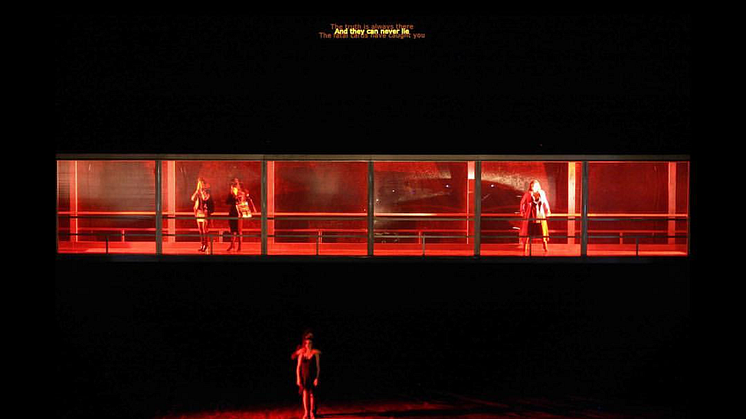
News -
A floating box on stage is not an original idea
Kanye West is being accused of stealing ideas, again. But this time the accuser might not be so correct in her assumption that her idea is original.
West recently held a concert in which he performed a song with Kid Cudi in a box (that looks like a hollowed-out 40-foot container) suspended by transparent wires above the stage. This is very similar to a setup by Lorde when she performed at Coachella in 2017.
And Lorde made sure West knew about it. After his performance, Lorde posted a photo of her floating box setup on Instagram with the caption: “I’m proud of the work I do and it’s flattering when other artists feel inspired by it, to the extent that they choose to try it on themselves. But don’t steal—not from women or anyone else—not in 2018 or ever.”
But two designers have spoken up against Lorde’s accusation of theft.
John McGuire, the owner of Trask House, which designed Kid Cudi and Kanye West’s floating glass box, told the New York Times that Lorde “wasn’t the first person to use a floating glass box, she won’t be the last. She doesn’t own it, her designer didn’t invent it. Cubes and floating aren’t new to Kanye West, stage design or architecture. A quick google of floating glass box brings up many instances of suspended glass cubes.”
Es Devlin, a designer who worked with Lorde on the design for her Coachella performance, posted a photo on Instagram of a performance of Carmen by Georges Bizet at the English National Opera on 2007, which featured a box suspended above the stage. She said: “The idea of a floating glass box, of course, is not in any way new and the geometry precedes all of us. The form finds another layer of resonance in each new context.”
In other words, Lorde would have a lot on her plate if she were to call every artist who stages a performance with a box suspended above a stage a thief.
But she would be interested to know that Apple did succeed in getting a patent on a shape - rectangle shape with rounded corners, although the patent is a broad one and is not that easy to enforce. Apple is not the first company to think up of a rectangular device with rounded corners, but it would be absurd for it to go after every phone company that produces a rectangular slab... or publishing companies that produce rectangular books with rounded corners.
